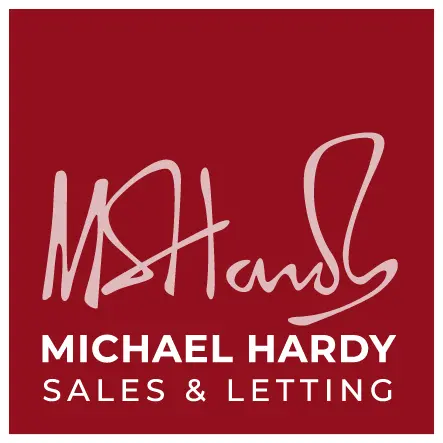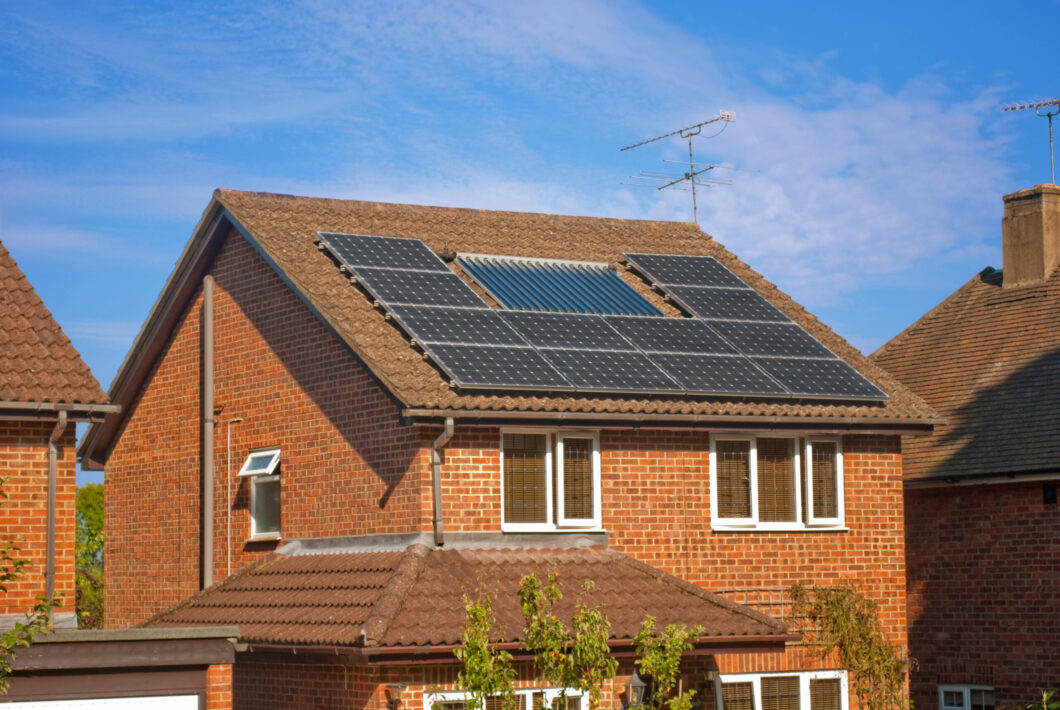Despite offering a home owner a portion of free electricity every year and the feel-good factor generating carbon-free energy, solar panels can cause complications when it comes to buying or selling a property. As we get scores of enquiries on this topic, we’ll endeavour to answer some of your frequently asked questions.
What are the benefits of buying a house with solar panels?
A well-sized system can help you generate a significant amount of free electricity – it is usually around 20-30% of your household’s annual requirements. You could also receive payments for the solar energy generated (where the panels are owned outright and not leased) and for any excess electricity exported to the grid. ‘Which’ estimated in January 2021, an average-sized home would net a saving of £344 per year on their energy bills.
A solar panel array will also knock over half a tonne off your carbon footprint for every kWp installed – approximately 2-3 tonnes with a standard domestic 4-6 kWp system.
What is the Feed in Tariff (FIT) and the smart export guarantee (SEG)?
The ‘feed-in tariff’ (FIT) was the payment scheme that guaranteed people who installed a qualifying solar system money for every unit of energy they generated. The unit price was set at the time of install and guaranteed for 20 years, which means that despite the scheme being now closed to new entrants, homes with a system that was installed before April 2019, will still receive payments until the end of their 20 year period. Find out more about FIT payments.
This scheme has now been replaced by the smart export guarantee (SEG), which launched in January 2020. Under the new SEG system, there is no generation tariff. Instead, customers generating renewable energy will only be paid for electricity that is fed back to the National Grid.
What does it mean when there is a leased solar panel installation?
When the FIT was launched back in 2010, it prompted many suppliers to offer a scheme where they leased solar panels to homeowners usually for a period of 25 years. A homeowner would enjoy generating a certain amount of free electricity every year (and take ownership of the panels at the end of it) and the solar panel contractor would benefit from the FIT payments.
This scheme was initially popular as it removed the need for considerable financial outlay, but those buying or selling a property with leased panels have discovered it can cause a legal headache as the solar supplier officially owns part of the roof for the duration of the contract. In these circumstances, the conveyancing process can take a bit longer while the details of a lease are scrutinised.
Could solar panels cause problems with getting a mortgage?
The answer is yes, some mortgage suppliers are reluctant to offer mortgages where panels are leased, rather than owned outright. However, as long as certain criteria are met, it is possible that any hurdles can be overcome.
The Council of Mortgage Lenders (CML) and the Building Society Association (BSA) have put together some guidelines for installers, mortgage providers and customers which set out the minimum criteria that solar panel installations should meet, as well as the terms required in each lease.
Key considerations are:
- Was the solar contractor accredited by the Microgeneration Certification Scheme (MCS)?
- Did the installation comply with all the regulations and was it insured?
- Is the property leasehold/freehold as with a leasehold property, permission for the installation would need to have been obtained?
- Can the panels be removed without penalties for missed Feed-in Tariff payments?
In some situations, there may be the option to buy out the remaining years of a lease in order to take full ownership.
Generally speaking, if a property is being sold with solar panels that are owned outright, then the process for this is more straightforward. It is likely that your property purchase and mortgage application will be able to proceed mostly in the same way as it would on a property without solar panels.
What maintenance will solar panels require?
This is generally not a big factor in the sale of a home featuring solar panels as they require minimal maintenance. As long as they are kept reasonably clean (and rainwater is said to do the job) then you should not have to factor in substantial sums for their upkeep.
However, it will be important to know when the system was installed and establish whether it is still under warranty. You should check exactly what the warranty covers, as the inverter commonly needs replacing every 10 years, so you could find yourself out of pocket if this isn’t covered. Solar panels should ideally be under a warranty that guarantees system performance for 25 years.
If you are interested in buying or selling a property with leasehold solar panels, we would recommend you seek advice from your mortgage provider and solicitor at the earliest opportunity to avoid delays or hiccups with the process.
To discuss listing your property or to get further advice on buying or selling a house with solar panels, call us on Wokingham 0118 977 6776 or Crowthorne 01344 779 999

